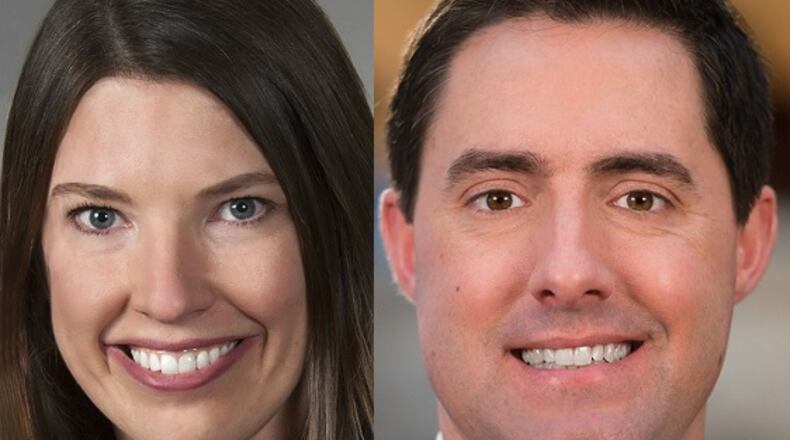“We’re looking around to see where we have viable candidates and where the registration will be favorable, probably in swing states, places where until recently they did have a Democratic secretary of state, where legislation has been passed that would be what we consider oppressive,” said Denise Merrill, the Connecticut secretary of state and the chairwoman of the Democratic secretaries of state association.
The Democrats will start out relatively small in this year’s election, hoping to amass about $1 million, Merrill said. The association is considering targeting races in Ohio, Michigan, New Mexico and other states with open seats or Democrats seeking re-election.
Republicans, meanwhile, are looking to hold or win secretary of state seats in places like Iowa, Colorado, Nevada, Georgia, Arizona, Wisconsin and Alaska.
Republican and Democratic secretaries alike have voiced concerns about Russian influence on the 2016 elections and demands for voter information from Republican President Donald Trump’s now-disbanded election fraud commission. But a battle has developed in some states over voter fraud, voter identification requirements and purging of voter rolls.
Secretaries of state, which function as a state’s top election official, burst into public consciousness on a grand scale when the disputed 2000 presidential election between George W. Bush and Al Gore orbited around Florida’s Katherine Harris.
“People woke up and realized that there’s a lot of power in the secretary of state’s office, electoral power,” said Merrill, who has been traveling the country to raise money from donors, including wealthy Democrats and labor unions. She credited Republicans with making a targeted approach about a decade ago, pumping millions of dollars into secretary of state races in key states.
POLITICS: ‘Civil rights action’ could stop hospital closing, Kucinich says
“It made a huge difference, and suddenly there was a swing of 10 seats in 2010 alone,” Merrill said. “It happened fairly quickly. But I think it can be reversed to some extent, because we are now paying attention.”
Ohio is pivotal
Depending on how the U.S. Supreme Court rules, the next secretary of state in Ohio, always pivotal in presidential elections, could decide whether to continue pruning voter rolls by targeting people who haven’t voted in a while.
State Rep. Kathleen Clyde, the Democratic secretary of state candidate here, is running for an open seat against Republican state Sen. Frank LaRose. If the Supreme Court upholds pruning, which proponents argue is needed to prevent fraud, Clyde has vowed to stop it, maintaining voters’ names have been illegally removed.
She has already been endorsed by national groups such as Emily’s List, which works to elect Democratic women. She predicts it will be a multimillion-dollar race that attracts a lot of outside money.
Big money
The Republican State Leadership Committee, which focuses on state races and oversees the Republican Secretaries of State Committee, spent nearly $30 million in 2010 on state races, including secretaries of state, records show.
A “battle of ideologies” has been happening for a while concerning the integrity of elections, said Matt Walter, president of the Republican State Leadership Committee.
There has been “a concerted effort by liberal and progressive interests to have a dialogue about election procedures,” he said, mentioning groups like iVote.
On its website, iVote said it first “went on offense by working to elect pro-voting secretaries of state in key battleground states” in 2014, noting it supports candidates that “encourage participation by expanding access for eligible voters.”
But accusations that Republican secretaries of state are trying to suppress voter turnout, especially among minority groups, to ultimately benefit GOP candidates “sound like the crocodile tears of people who failed to run good candidate who had good visions for their states,” Walter said.
He insisted GOP candidates want to make it “easier to vote and harder to cheat” by taking steps such as removing outdated information from voter lists.
“When you clean those things up,” he said, “you remove the possibility for people who are attempting to intrude into the voting process, and you also remove innocent errors.”
By SUSAN HAIGH, Associated Press
About the Author
